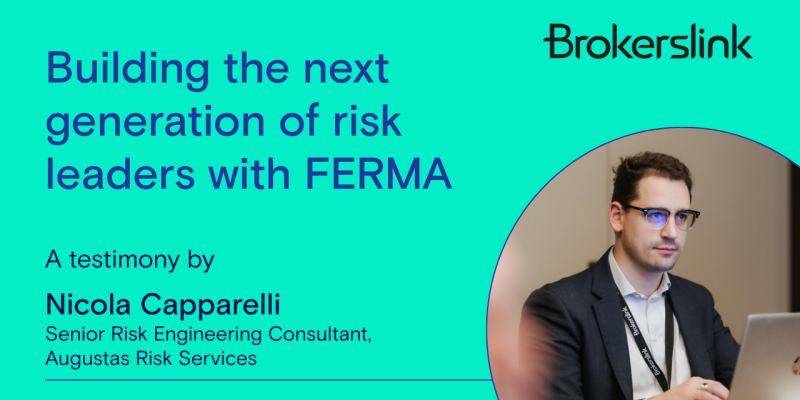Pedro Pinhal, CEO, RCG
The world is changing at an unprecedented pace, and the only certainty we have is uncertainty itself. This reality makes FERMA's new NEXT (New Exposure Trends) report not just timely, but essential reading for risk management professionals.
A butterfly flaps its wings…
The concept of the ‘butterfly effect’ is well-known. The idea that something small, seemingly insignificant, happening in one place could cause ripple effects that have a significant impact in another. Previously, this was an abstract concept, more theoretical than tangible. But now? It happens right before our eyes. Just one month ago in Iberia, we experienced tremendous power outages that highlighted the dangerous interdependence within our energy grid. Gas stations couldn't operate because they needed electricity, yet we needed gas to run generators for electricity, a crazy paradox that few people had ever considered, let alone prepared for.
This interconnectedness isn't limited to energy infrastructure. With AI systems like ChatGPT, Gemini, and Copilot dominating the market, we're creating new supply chain vulnerabilities. When multiple applications depend on a small number of AI sources, we risk cascading failures that could ripple across entire business ecosystems.
Preparing for known unknowns and unknown unknowns
FERMA’s NEXT report highlights the urgent need for a strategic transformation in risk management. It calls for a shift from reactive to proactive approaches, from looking backwards to anticipating the future, and from treating risk as a transaction to embracing it as a strategic priority. To not only survive but also thrive amid future risks, risk managers must foster a cultural change in how risk is understood and managed.
FERMA highlights four critical long-term and interconnected risks that will significantly shape the risk landscape in the coming years:
- Geopolitical shifts
- Technological acceleration
- Climate change
- Human capital
I would add a fifth to this list. Operational and supply chain disruption. This isn't a new risk category, but its importance has magnified exponentially in our interconnected world.
Business interruption now intersects with all other risk categories. Geopolitical shifts create tariffs that disrupt supply chains. Climate change events in one region affect global operations. The transition from human-based tasks to AI reliance creates new bottlenecks.
From reactive to proactive
The biggest takeaway from FERMA’s report is ‘proactivity, proactivity, proactivity’. Beyond simply keeping a close watch on what’s happening in our world today, risk managers must be forward-looking. They must experiment with different scenarios to build resilience, stay up to date with the latest news and predictions, not just from their own country, but around the world, and carefully use available data to create key risk indicators, which can help them to quickly identify emerging trends before they become a problem.
Bridging the short-term/long-term divide
The biggest challenge facing risk managers is balancing immediate fire-fighting with forward-thinking preparation. This is where multinational risk management consulting firms can serve as trusted advisors, helping bridge the gap between short-term operational demands and long-term strategic thinking.
At RCG, we operate across 20 time zones with engineers in Europe, Africa, Asia and the Americas, we can provide the 24-hour coverage and global perspective that individual risk managers struggle to maintain alone. Our practical experience across more than 60 countries last year gives us insights into emerging trends and lessons learned that can be transformed into actionable intelligence.
RCG, and risk consultancies like ours act as trusted partners, giving guidance, scanning the horizon and developing risk mitigation strategies, allowing risk managers to focus on their own immediate priorities.
A strategic evolution in broking
For brokers, the path forward is clear: evolve from transactional service providers to strategic risk advisors. This means deeply understanding clients' activities, markets, and vulnerabilities, not just to transfer risk through insurance, but to guide clients through the entire risk management journey.
The most successful brokers will incorporate risk management perspectives into their services, working as true allies rather than mere intermediaries. This transformation from transactional to consultative relationships creates competitive advantages and opens new market opportunities.
We live in an era where uncertainty is accelerating, interconnectedness is deepening, and the margin for error is shrinking. FERMA's NEXT report provides an excellent framework for navigating this landscape, but success will depend on our collective ability to embrace proactivity, build genuine resilience, and transform risk management from a defensive function into a strategic advantage.
The organisations that begin treating risk as a strategic imperative today will be the ones that not only survive tomorrow's black swan events, but emerge stronger from them.






